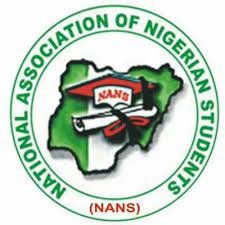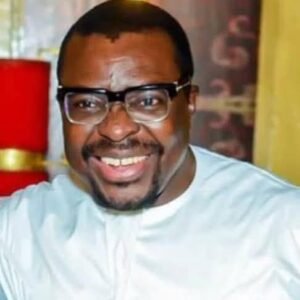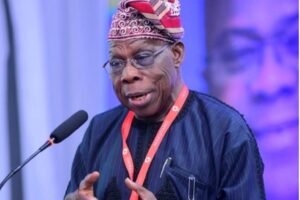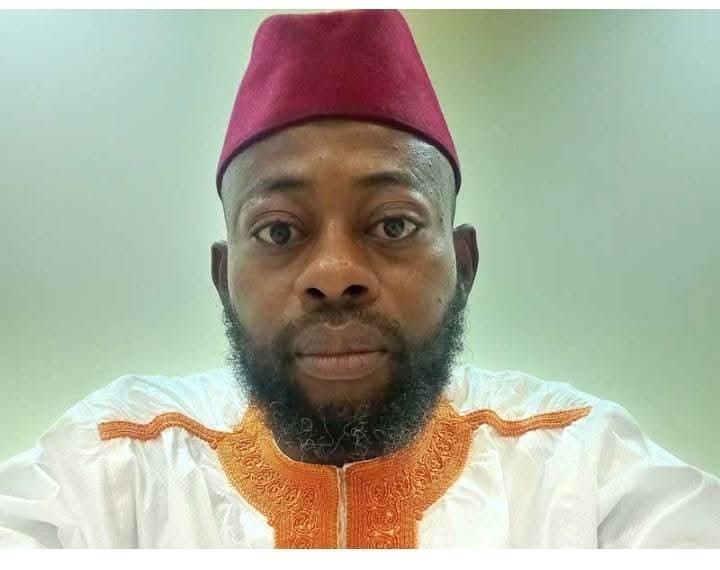The National Association of Nigerian Students (NANS), once a vibrant force championing the rights and interests of students, has now become a mere lapdog of the government. In this special report, Korede Abdullah, Southwest Correspondent for Africa Health Report (AHR), examines the current state of the organization.

From Vanguard of Democracy to Political Pawns and Vendetta
In the 1960s, the National Association of Nigerian Students (NANS), formerly known as the National Union of Nigerian Students (NUNS), played a significant role in Nigerian politics and society. NANS was a major force in student activism, often mobilizing students to protest against government policies and advocating for social justice. NUNS was founded in 1956, following structural changes in the West African Students’ Union.
According to records, for example, under the British Colonial rule, its fraudulent Constitutional amendments of the 20s, 40s, and 50s were respectively challenged by the Nigerian Students Union organization or Government, at the tertiary institutions -including colleges, poly-techniques, at the Federal and States level respectively, it also partnered with its familiar overseas operational grid-lock on Foreign affairs. Leaders like Segun Okeowo (1978), made student unionism a body that sent shivers down the veins of political and military leaders at the time.
Coming down to the 80s which could aptly be described as A Glorious Past of Intellectual Resistance,
prominent NANS’ leaders like Lanre Arogundade of the University of Ife (now Obafemi Awolowo University) in 1984, the late comrade Chima Ubani, Danladi Sunday Oladele (1980)
Segun Mayegun from the University of Lagos, and Omoyele Sowore, who later became a prominent activist and journalist, epitomized the spirit of “aluta” — the struggle for justice.
These student leaders were not mere agitators; they were intellectuals who engaged in rigorous debates, published critical analyses, and organized mass protests against military dictators such as General Ibrahim Babangida and General Sani Abacha.
Their activism contributed significantly to the eventual return to civilian rule in 1999, laying a foundation for democratic governance in Nigeria.
By 1995, NANS under the leadership of Ogunlana Oludare, maintained the aluta spirit.
At the national level NANS led by, Dennis Inyang, as President, NANS with its Ad-hoc mobilization team, mobilized itself, mobilized the nation and confronted the military authoritarianism and totalitarianism under late Abacha’s regime. NANS questioned the late Abacha’s illegitimate-criminal decrees, and other illegalities including massive corruption[s] at all level, while our people suffered and continued to suffer.
NANS, Living on its Past Glory
Nigerian student unions once stood as formidable bastions of resistance against tyranny, injustice, and military oppression. During the dark days of military regimes, student unionists were at the forefront of courageous protests, intellectual debates, and grassroots mobilizations that challenged despotic rule and championed human rights.
Yet, in a tragic irony, today’s student unions have largely been co-opted by political interests, transforming vibrant activists into mere instruments of self-serving politicians. This shift not only undermines the historic legacy of student activism in Nigeria but also jeopardizes the nation’s future leadership.
The Politicization and Corruption of Student Unions
Fast forward to the present, and the landscape of student unionism in Nigeria has dramatically shifted. Rather than acting as independent voices of the student body, many unions have become extensions of political machinery.
Politicians now handpick union leaders who will serve their interests, often using student unions to mobilize votes, disrupt academic calendars for political gain, or suppress dissenting voices within campuses.
Corruption has seeped into the fabric of student leadership, with allegations of embezzlement, vote-buying, and intimidation becoming commonplace. This erosion of integrity starkly contrasts with the principled activism of past student leaders.
NANS as a Political Springboard
Veteran comedian Atunyota Alleluya Akpobome, popularly known as Ali Baba, recently revealed how Nigerian politicians manipulate student leadership structures, particularly the National Association of Nigerian Students (NANS), for political gain.
In an interview, Ali Baba emphasized that politicians do not underestimate the strategic importance of student unions in swaying the youth population.

“Politicians see NANS members as willing tools to galvanize youth support,” he said, highlighting the recurring trend where student leaders are absorbed into political campaigns to create grassroots momentum and street-level legitimacy.
Obasanjo’s Political Playbook
Ali Baba recounted a conversation with former President Olusegun Obasanjo, who laid bare the multi-pronged strategy political aspirants often employ to win presidential elections in Nigeria. According to him, Obasanjo explained that international influence and mass mobilization are critical, with students playing a frontline role.

“Obasanjo told me that an aspiring president must get the support of global superpowers like the US or China, mobilize NANS, market women, NURTW, and unsettle organized labour,” Ali Baba said. This, he noted, is due to the strategic advantage these groups offer in controlling public opinion and exerting influence across various demographics.
Youth Mobilization and Political Manipulation
Further delving into the tactics, Ali Baba disclosed Obasanjo’s counsel on undermining political opponents through infiltration and strategic defections—tactics often powered by youth mobilization under the guise of NANS activism.
“He advised buying off delegates a year before party congresses, encouraging defections, and using NANS leaders to mobilize youths,” Ali Baba revealed.
This admission sheds light on how student unionism, once a stronghold for advocacy and democratic ideals, has increasingly become entangled in political manipulation, reducing NANS to a pliable tool in the hands of ambitious politicians.
A Shift from Advocacy to Partisanship
During his tenure as President of the National Association of Nigerian Students (NANS), Comrade Sunday Asefon stirred controversy by mobilizing students nationwide to support the presidential ambition of Asiwaju Bola Ahmed Tinubu of the All Progressives Congress (APC) ahead of the 2023 elections.
Rather than championing student welfare, Asefon launched a partisan initiative called “Tinubu/Shettima Students Vanguard” in Abuja.
At the unveiling ceremony, Asefon, who doubled as the National Coordinator of the group, declared: “The unveiling of the largest student movement is targeted at the actualization of the ‘Renewed Hope’ mandate of Tinubu/Shettima 2023 Presidency Project.”
Leadership Crisis Splits NANS into Factions
The National Association of Nigerian Students (NANS) is facing a deepening leadership crisis as two individuals—Olushola Ladoja and Atiku Isah—simultaneously claim the presidency. The turmoil stems from parallel conventions conducted by rival factions, each asserting their candidate was duly elected.
Ladoja enjoys the backing of a coalition of South-West student groups, while Isah is supported by Northern delegates and some outgoing executives. The situation has ignited campus debates nationwide and sparked a social media storm.
Notably, Isah previously accused Seyi Tinubu, son of Nigeria’s president, of attempting to bribe him before later retracting the claim and issuing an apology, adding fuel to allegations of external meddling.
Stakeholders Call for Investigation amid Credibility Crisis
The power tussle has exposed a troubling lack of cohesion within the student body and drawn criticism from observers who fear the institution’s collapse. Former NANS leaders and civil society actors are calling for an independent probe and reconciliation process to resolve the conflict.
Many see the leadership dispute as a symptom of deeper problems in student politics, including political interference and eroding democratic norms.
While both Ladoja and Isah claim to serve the interest of Nigerian students, their unresolved rivalry threatens the effectiveness of NANS at a time when issues like fee hikes and campus insecurity demand united leadership.
Ladoja Denies Factionalism, Defends Seyi Tinubu
Olushola Ladoja, now officially recognised by some as the legitimate NANS president, has strongly denied the existence of factional leadership. In a statement, he declared himself the “sole, legitimate, and globally recognised” president, accusing Isah of impersonation and threatening legal action.

In an interview on Channels TV’s Sunrise Daily, Ladoja also defended Seyi Tinubu, dismissing social media accusations against the president’s son. “Seyi Tinubu brought himself low to mingle with youths… I don’t see why people would drag his name online. It doesn’t make sense,” he stated, distancing both himself and the association from any formal ties to Tinubu.

Political Influence Undermining NANS—Former Leader
Henry Okunomo, a former NANS Senate President, expressed alarm at what he described as the increasing politicisation of the association. Speaking on Channels TV, Okunomo said the involvement of political figures, especially Seyi Tinubu, was eroding the core mission of the student body.
“Everybody is now tagging themselves to one political party or the other… With the president’s son involved over the past year, the organisation has become porous,” he warned.
His remarks reflect growing unease among stakeholders who view the ongoing crisis not just as a leadership dispute, but as a sign of declining independence and rising political capture of Nigeria’s foremost student union.
Political Loyalty Rewarded
Following the victory of President Tinubu, Asefon’s loyalty did not go unnoticed. He was appointed as a Special Assistant to the President, raising questions about the intersection of student activism and political patronage.
Critics argue that such rewards compromise the independence of student leadership, turning erstwhile activists into political beneficiaries.
This development has drawn sharp criticism from stakeholders who believe student unions are being converted into campaign tools rather than watchdogs of government policies affecting youth and education.
Voices of Dissent and Concern
Yahaya Balogun, a U.S.-based public affairs analyst and former student unionist, while speaking with Africa Health Report (AHR), expressed deep concern over what he sees as the politicization of student leadership in Nigeria.
“In our time, student unions were the conscience of the nation, fearlessly challenging governmental excesses,” he said. “Today, many have traded activism for appeasement.”
Balogun attributed this decline to increasing political interference and a lack of ideological depth among current student leaders. He called for a revival of authentic unionism that prioritizes integrity and public service over political gains.
Consequences for Nigeria’s Democratic Future
Analysts believe that the degradation of student unions has profound implications for Nigeria’s democratic future. Serenus Adeyemi also a former student leader and activist told our correspondent that student unions historically served as training grounds for future political leaders and activists committed to good governance and social justice.
“The current trend of co-optation and corruption risks producing a generation of leaders who lack the moral compass and courage to challenge abuses of power. This phenomenon perpetuates a vicious cycle where political elites manipulate youth organizations to maintain the status quo, stifling innovation, critical thinking, and genuine political engagement among young Nigerians”, Adeyemi lamented.
Reclaiming the Spirit of Aluta
Adeyemi said to reverse the decline requires a concerted effort from multiple stakeholders. According to him, universities must enforce “stricter regulations to ensure transparency and democratic processes within student unions.”
He suggested that civil society organizations and the media need to spotlight instances of corruption and political manipulation on campuses, adding that “Most importantly, the students themselves must rekindle the spirit of aluta — embracing activism rooted in intellectual rigor, ethical leadership, and a commitment to justice.
The activist concluded that only by reclaiming their autonomy can Nigerian student unions restore their role as catalysts for positive change and guardians of democracy.
While Nigerian student unionism has lost its way in recent decades, the legacy of courageous leaders from the past serves as a beacon of hope.
The challenge ahead lies in reviving the authentic, principled activism that once made student unions a powerful force against oppression and a training ground for transformative leadership. The future of Nigeria’s democracy may well depend on it.



